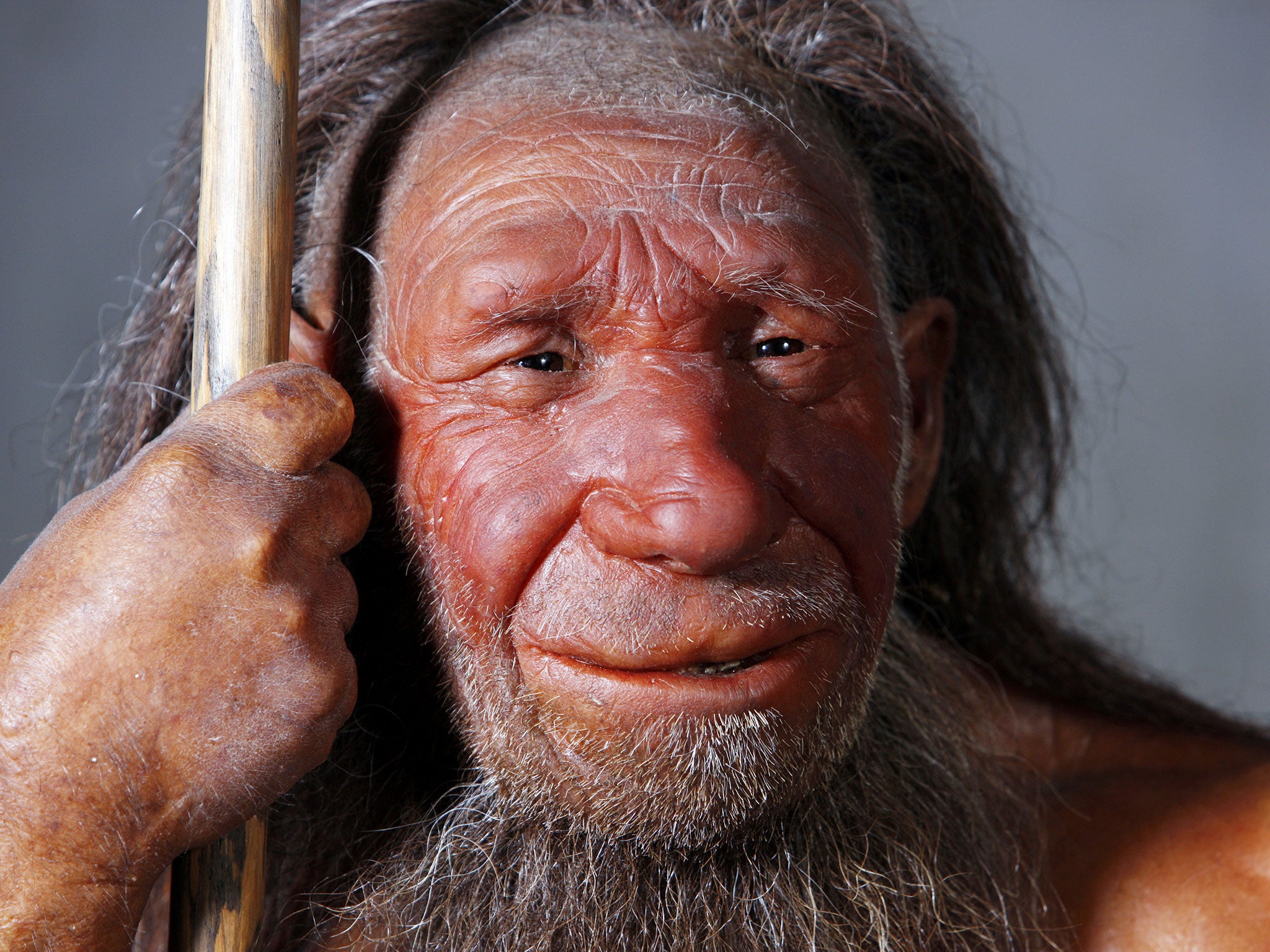Modern health problems 'could have origins in Neanderthal interbreeding'
Study finds genetic variation inherited from early breeding with Homo sapiens could make individuals susceptible

Many modern health problems, ranging from depression to nicotine addiction, could have their origins in the limited interbreeding between early Homo sapiens and Neanderthals more than 40,000 years ago, scientists said.
A study of the DNA of 28,000 people has found that some of the genetic variation inherited as a result of the cross-breeding may have made some individuals susceptible to a wide range of disorders.
“We discovered associations between Neanderthal DNA and a wide range of traits, including immunological, dermatological, neurological, psychiatric and reproductive diseases,” said John Capra of Vanderbilt University in Nashville, Tennessee, of the latest study, published in the journal Science.
Neanderthals were a separate species of early humans that lived across Western Europe into Central Asia more than 200,000 years ago until they went extinct about 40,000 years ago soon after the arrival of anatomically modern humans, Homo sapiens, in Europe.
A comparison of the Neanderthal genome with the genetic variation seen in modern-day people found for instance that sun-induced skin damage in fair-skinned, blue-eyed people called keratosis appears to be linked to the inheritance of genetic variations that stem from the Neanderthal lineage.
In another study, it was found that a specific bit of the Neanderthal DNA appears to increase the risk of developing nicotine addiction, while a number of genetic variants influence the risk of depression.
Join our commenting forum
Join thought-provoking conversations, follow other Independent readers and see their replies
Comments
Bookmark popover
Removed from bookmarks